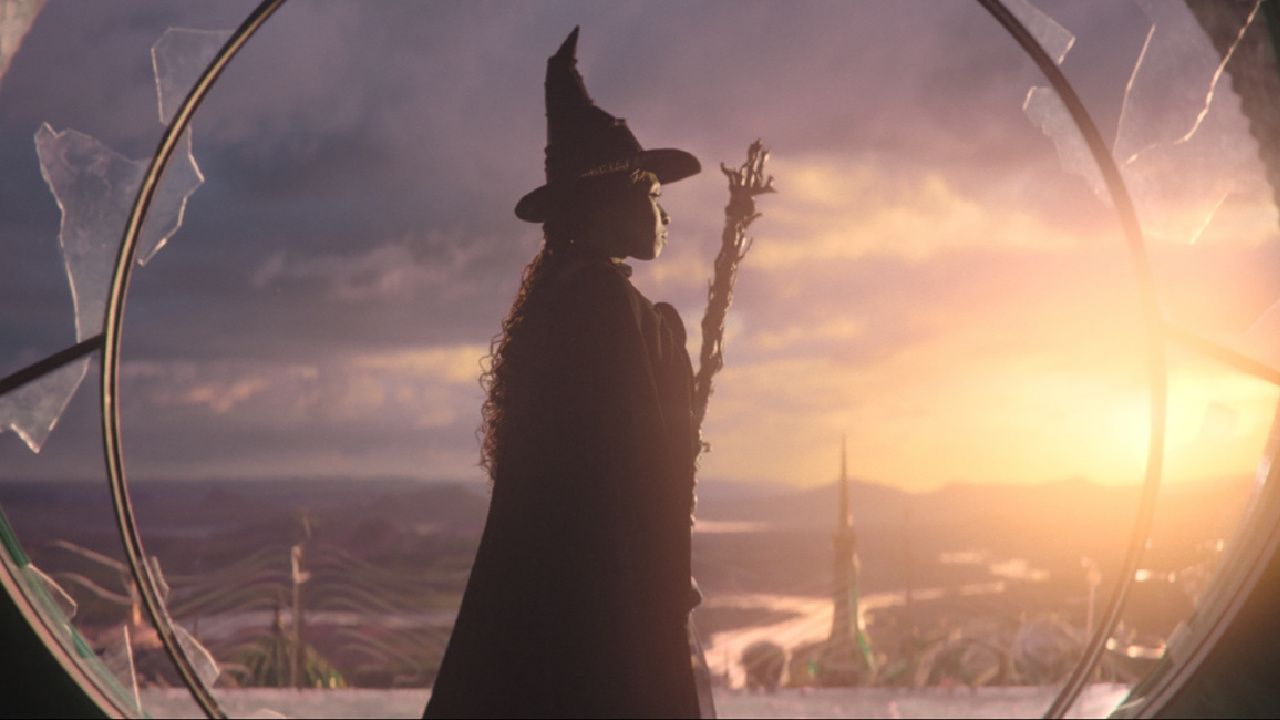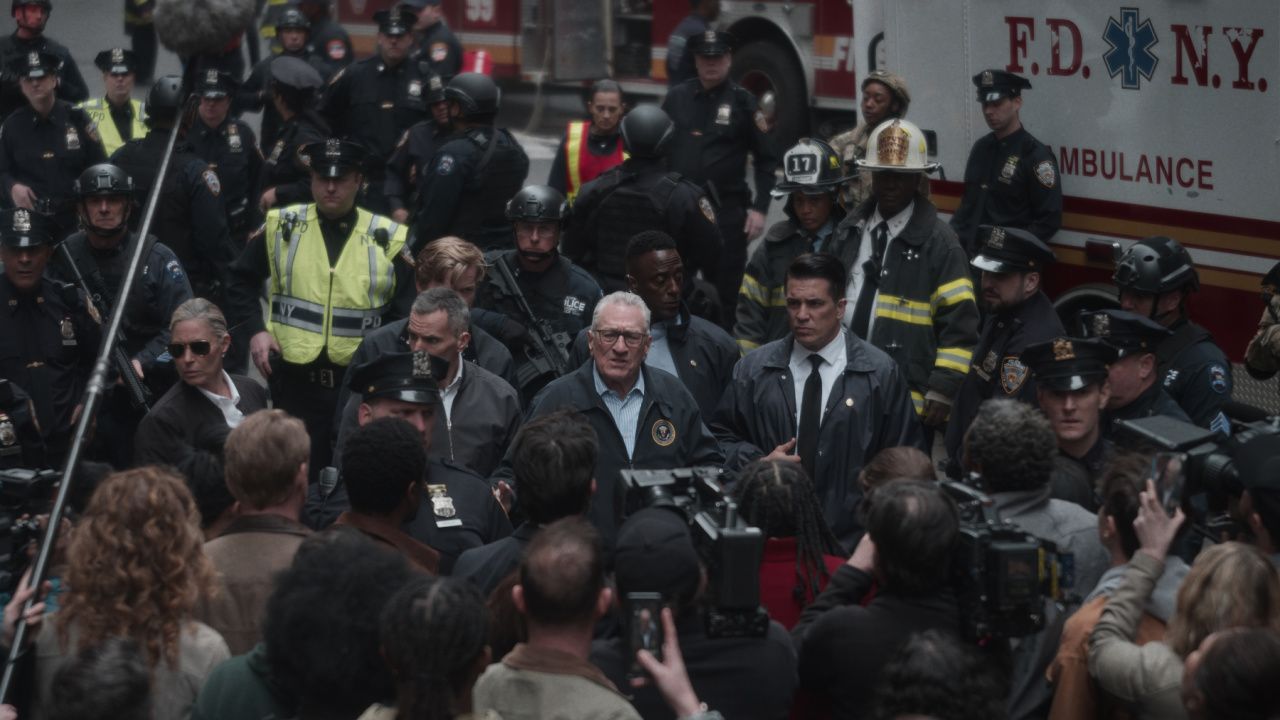Andra Day & Glenn Close in Lee Daniels Film

Lee Daniels’ The Deliverance is, on the one hand, a typical and considered domestic drama about a matriarch (Andra Day) balancing family obligations, alcoholism and a tempestuous relationship with her mother (Glenn Close). On the other hand, it represents the director’s foray into the supernatural. Here, Daniels, the director of slushy films like Precious and The Butler, digs into hauntings and, from them, extracts lessons in faith. It’s possible for both narrative threads to co-exist or intertwine harmoniously, and the film’s structure reveals Daniels’ intention for them to inform one another. But The Deliverance is too choppy an affair, and the mix rarely achieves total coherence.
Taking inspiration from the real-life story of LaToya Ammons, an Indiana woman who claimed that malevolent spirits lurked in her home and possessed her children, Daniels tells the tale of Ebony (Day), a single mother contending with financial problems and state surveillance, in addition to the aforementioned vengeful forces. The film opens on a sweet note in 2011 Pittsburgh with Ebony and her son Andre (Anthony B. Jenkins) finalizing their move into a new home. Andre, a young child most comfortable in the presence of his imaginary friends, has just put the finishing touches on a detailed mural covering the wall of the room he and his siblings share.
The Deliverance
The Bottom Line
Never quite finds it footing.
Release date: Friday, Aug. 16 (select theaters); Friday, Aug. 30 (Netflix)
Cast: Andra Day, Glenn Close, Mo’Nique, Anthony B. Jenkins, Miss Lawrence, Demi Singleton
Director: Lee Daniels
Screenwriter: David Coggeshall and Elijah Bynum
Rated R,
1 hour 51 minutes
As they set up, Ebony’s mother Alberta (Close) worships at church with the older kids, Shante (Demi Singleton) and Nate (Caleb McLaughlin). Later scenes reveal the tensions brewing within the family: Alberta, a recent inductee to Christianity, criticizes how Ebony, a lapsed alcoholic, raises the kids. The children, meanwhile, are worn down by their chronic poverty and itinerant lifestyle. The absence of their father — recently deployed to war — looms at the dinner table.
Daniels, working from a screenplay written by David Coggeshall and Elijah Bynum, takes time before introducing any haunting. The early half of The Deliverance sketches in the life of this family as a way to bolster viewer investment. While Ebony struggles to control her temper, Alberta manages her cancer with weekly chemotherapy sessions. Nate grapples with local bullies, Andre finds company in solitude and Shante wonders when their father will return home.
The direction here is confident and the scenes are anchored by intimate shots (the DP is Eli Arenson) of each family member. Most of the detailing happens within Ebony and Alberta’s relationship. Here, Daniels explores, again in broad but not insufficient strokes, the pressures and tensions between a biracial daughter and her white mother. In the margins of this family’s life stands Cynthia (Mo’Nique marking a return to working with Daniels), a case worker from the Child Protective Services tasked with investigating whether Ebony abuses her kids.
She does, and Daniels presents these moments not as sensationalistic transgressions but the disturbing result of generations of trauma. Before Alberta found Jesus, she also abused Ebony. Day, who worked with Daniels on The United States vs. Billie Holiday, proves her range again in The Deliverance. She doesn’t sand down Ebony’s rougher edges with melodramatic physicality but instead explores her coarseness, finding soft filaments within the single mother’s bristly temperament. Day lives up to her character’s responsibilities as matriarch, too, giving the other actors a sturdy anchor for their performances. Here, unlike in other parts of The Deliverance, there is a semblance of cohesion.
The supernatural instigates fissures in both Ebony’s family and Daniels’ film. A typical pattern of ghostly presence begins: creaking doors, strange footsteps, a dead crow. Andre begins talking with someone named Tre, a figure who asks him to do devious deeds. But Daniels struggles with pacing here, overestimating our patience for anticipation. Eventually, the demons possess Ebony’s kids and the mother finds herself desperate for help. She finds salvation in Rev. Bernice James (Aunjanue Ellis-Taylor, brief but impactful).
Once the bad spirit takes over the story, The Deliverance loses whatever potency it managed to build. The attempt to fuse domestic drama and horror isn’t nearly as convincing as it could be if Daniels didn’t rely on cheap effects to visualize the relationship between these acrimonious ghosts and Ebony. His desire to wrest explicit meaning out of the mother’s experience and corral viewers toward a single conclusion unwittingly places The Deliverance in mawkish and disappointingly cartoonish territory.
Full credits
Distributor: Netflix
Production companies: Tucker Tooley Entertainment, Lee Daniels Entertainment, Turn Left Production
Cast: Andra Day, Glenn Close, Mo’Nique, Anthony B. Jenkins, Miss Lawrence, Demi Singleton, Tasha Smith, Omar Epps, Caleb McLaughlin, Aunjanue Ellis-Taylor
Director: Lee Daniels
Screenwriters: David Coggeshall and Elijah Bynum
Producers: Lee Daniels, p.g.a; Tucker Tooley, p.g.a.; Pamela Oas Williams, p.g.a.; Jackson Nguyen, Todd Crites
Executive producers: Jackie Shenoo, Hilary Shor, Greg Renker, Gregoire Gensollen
Director of photography: Eli Arenson
Production designer: Steve Saklad
Costume designer: Paolo Nieddu
Editor: Stan Salfas, ACE
Music: Lucas Vidal
Casting director: Billy Hopkins and Ashley Ingram
Rated R,
1 hour 51 minutes
Read the original article here






